Washington Woman's Club
the woman's club movement
By becoming involved in church, community or charitable groups, women have been able to find companionship and a way to facilitate change in their communities.
Who We Are
The Washington Woman’s Club exists to give women a space to share ideas as equals and to encourage one another to turn those ideas into practical action for the welfare of our community. Meetings are held the 2nd Monday of each month at noon, September through May.

Events
The Woman’s Club is host to several annual events. These events foster community pride, promote tourism and lay the foundation of fundraising for various outreach programs.
Community
Some of the earliest women-led organizations were involved in women’s suffrage, anti-slavery movements and war efforts. Our local chapter remains committed our local community and the issues we face today, through various programs.
Scholarship
Women’s clubs were noted for promoting educational efforts around the country by their contemporaries. Today, we remain committed to that mission.
Want to book our historic home or have a question?
Have a Look at our History
The woman’s club movement was a social movement that took place throughout the United States that established the idea that women had a moral duty and responsibility to transform public policy. While women’s organizations had always been a part of United States history, it was not until the Progressive era that it came to be considered a movement. The first wave of the club movement during the progressive era was started by white, middle-class, Protestant women, and a second phase was led by African-American women.
These clubs, most of which had started out as social and literary gatherings, eventually became a source of reform for various issues in the U.S. Both African-American and white women’s clubs were involved with issues surrounding education, temperance, child labor, juvenile justice, legal reform, environmental protection, library creation and more. Women’s clubs helped start many initiatives such as kindergartens and juvenile court systems. Later, women’s clubs tackled issues like women’s suffrage, lynching and family planning. The clubs allowed women, who had little political standing at the time, to gain greater influence in their communities.
The woman’s club movement became part of Progressive era social reform, which was reflected by many of the reforms and issues addressed by club members. According to Maureen A. Flanagan, many women’s clubs focused on the welfare of their community because of their shared experiences in tending to the well-being of home-life. Tending to the community was often called “municipal housekeeping” during the Progressive era and reflected a shared belief by many club members that home and city life were linked through city hall. By constructing the idea of municipal housekeeping, women were also able to justify their involvement in government. Later, in 1921, Alice Ames Winter describes how women had begun to see “their homes as the units out of which society was built”, and that home life and public life were linked. Women’s clubs “established the idea that women had a moral duty and responsibility to transform, define and shape public policy”. Women’s clubs were also “training schools” for women who wanted to get involved in the public sphere. They helped women attain both social and political power.
Many women’s clubs increased their memberships by having other members sponsor or nominate new members to the group. Clubs often organized themselves by committee, or division. Many women’s clubs created and occupied their own clubhouses. Today these clubhouses have continued to be the site of women’s meetings and other gatherings. Some women’s clubs created and continue to publish their own journals and newsletters.
What Are You Waiting For...
Connect with us
location
108 N. Alexander Ave. Washington, Georgia 30673
phone
(706) 678-2013
